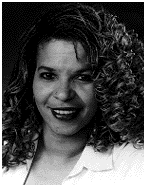-

Chapter 8: American Drama
Ntozake Shange
1948 - 2018
Page Links: | Primary Works | Selected Bibliography 1980-Present | MLA Style Citation of this Web Page |
Site Links: | Chap. 8: Index | Alphabetical List | Table Of Contents | Home Page |

|
|
Chapter 8: American Drama
Ntozake Shange
|
|
Site Links: | Chap. 8: Index | Alphabetical List | Table Of Contents | Home Page |

For Colored Girls Who Have Considered Suicide/ When the Rainbow is Enuf, 1969; See No Evil: Prefaces, Essays and Accounts, 1976-1983, 1984"Ntozake Shange: Interviews," New Yorker, 52 (2 Aug. 1976): 17-19.
Other theatrical works by Shange are A Photograph (1977), Boogie Woogie Landscapes (1979), Spell #7 (1979), Black and White Two Dimensional Planes (1979), Mother Courage and Her Children [an adaptation] (1980) for which she received an Obie award in 1981, Three for a Full Moon (1982), Bocas (1982), Educating Rita [an adaptation] (1982), and Three Views of Mt. Fuji (1987). She has also published books of fiction and poetry. Her novels are Sassafras, Cypress, and Indigo (1982), Betsey Brown (1985), and Liliane: Resurrection of the Daughter (1994). Her poetry collections include Nappy Edges (1978), A Daughter's Geography (1983), Ridin' the Moon to Texas (1987), and The Love Space Demands: A Continuing Saga (1992 ?).
Selected Bibliograph1980-Present
Bryer, Jackson R. ed. The Playwright's Art: Conversations with Contemporary American Dramatists. New Brunswick, NJ: Rutgers UP, 1995.
Hamilton, Pamela. "Child's Play: Ntozake Shange's Audience of Colored Girls." Harris, Trudier and Larson, Jennifer. eds Reading Contemporary African American Drama: Fragments of History, Fragments of Self. NY: Peter Lang, 2007.
Kolin, Philip C. and Colby H. Kullman. eds. Speaking on Stage: Interviews with Contemporary American Playwrights. Tuscaloosa: U of Alabama P, 1996.
Lester, Neal A. Ntozake Shange: A Critical Study of the Plays. NY: Garland, 1995.
Lockridge, Aisha D. Tipping on a Tightrope: Divas in African American Literature. NY: Peter Lang, 2012.
Nelson, Emmanuel S. ed. Contemporary African American Novelists: A Bio-Bibliographical Critical Sourcebook. Westport, CT: Greenwood, 1999.
O'Connor, Jacqueline. "Ntozake Shange." Wheatley, Christopher. ed. Twentieth-Century American Dramatists, Third Series. Detroit: Gale, 2002.
Ryan, Judylyn S. Spirituality as Ideology in Black Women's Film and Literature. Charlottesville: U of Virginia P, 2005.
Wheatley, Christopher. ed. Twentieth-Century American Dramatists, Third Series. Detroit: Thomson Gale, 2002.
Young, Jean. "Ritual Poetics and Rites of Passage in Ntozake Shange's For Colored Girls Who Have Considered Suicide/When the Rainbow Is Enuf." Harrison, Paul C., Walker, Victor Leo, II., and Edwards, Gus. eds. Black Theatre: Ritual Performance in the African Diaspora. Philadelphia Temple UP, 2002.
| Top | Ntozake Shange (1948 - ): A Brief Biography A Student Project f by B. Mishel Staats
Poet, author, and playwright Paulette Williams was born in Trenton, New Jersey on October 18, 1948. Her parents, Paul and Eloise Williams, and their four children , the eldest being Paulette, were an upper-middle class family. Paul Williams was an Air Force surgeon and his wife worked as an educator and a psychiatric social worker. As an artistic and cultured family, the Williams' enjoyed visits from friends such as Chuck Berry, Miles Davis, Josephine Baker, and W. E. B. Dubois.
Although the family maintained a richly intellectual home environment, the Brown vs. Board of Education decision created a racially segregated school system for the children. When she moved to St. Louis with her family in 1956, Paulette Williams, eight years old, attended a German-American school where, despite the integrated school system, she encountered racism.
For five years, she lived in St. Louis and absorbed the city's diverse art, music, dance, literature, and opera. She returned to New Jersey in 1961 to complete high school. A year after entering Barnard College at age eighteen, Williams survived a trail of personal battles after separating from her husband, a law student. Her depression affected her so deeply that many attempts at suicide followed the relationship's failure. Despite her drinking chemicals, slashed wrists, Valium overdose, and, ultimately, driving her Volvo into the Pacific Ocean, Williams graduated cum laude with a B.A. in American Studies from Barnard in 1970 and in 1971, took a name to reflect her power to achieve. Translated into English from Xhosa, the Zulu language, Ntozake Shange means "she who comes with her own things and walks like a lion."
She received her master's degree from the University of Southern California in 1973. While living in California, Shange studied Afrikan- American Dance and performed with the following dance companies: Third World Collective, Raymond Sawyer's Afrikan- American Dance Company, Sounds in Motion, and West Coast Dance Works. Shange also had her own company named For Colored Girls Who Have Considered Suicide.
She taught humanities, women's studies, and Afro- American studies in California at Sonoma State College, Mills College in Oakland, and the University of California Extension. Shange's interaction with other artists and teachers in the San Francisco area led to her collaboration with Paula Moss on for colored girls who have considered suicide/ when the rainbow is enuf. The play's success in its early stages enabled Shange and Moss to perform "for colored girls…" in New York and on television. "for colored girls…" was nominated for Tony, Emmy, and Grammy awards in 1977.
WORKS CITED
Bridges, Wallace. "Ntozake Shange (Paulette Williams)." URL: http://www.bridgesweb.com/shange.html (March 13, 2001)
"Ntozake Shange: Playwright, Poet, Novelist." The Nubian Message-Staff Report. URL:http://sma.ncsu.edu/Nubian/Archives/Spring1998/041698/Culture/nt ozake_shange.html
"Ntozake Shange." Women of Color Women of Words. URL: http://www.scils.rutgers.edu/~cybers/shange2.html
MLA Style Citation of this Web Page
Reuben, Paul P. "Chapter 8: Ntozake Shange." PAL: Perspectives in American Literature- A Research and Reference Guide. URL: http://www.paulreuben.website/pal/chap8/shange.html (provide page date or date of your login).| Top |